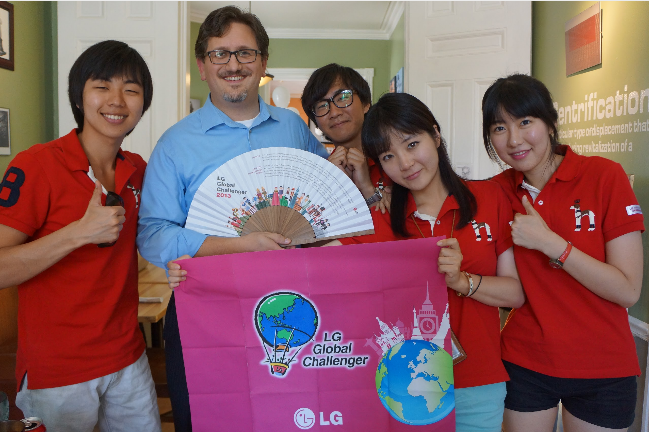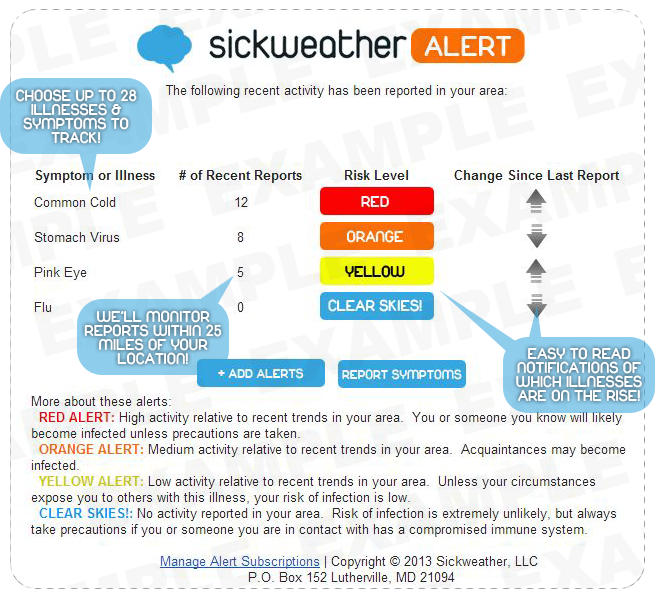Validation for sickness-tracking startup Sickweather came about a year and a half after officially launching in early 2011: last fall, it predicted an early flu season six weeks ahead of the Centers for Disease Control and Prevention.
Still, finding a way to convert that validation into revenue has remained elusive for cofounders Graham Dodge, Michael Belt and James Sajor.
By mining Facebook statuses and Twitter messages for illness-related information, the Baltimore County-based startup tracks a variety of symptoms across the U.S., including ones for the flu that enabled it to warn people of an earlier-than-usual flu season. Now Sickweather is hoping people will pay for the privilege of knowing early.
Sickweather Alerts allow people to track 28 different symptoms and illnesses that Sickweather tracks, with e-mail notifications — no more than one per day, said cofounder Dodge — sent as soon as an outbreak occurs close to where users live. It’s $1 per month, per alert, although Sickweather is now promoting the service, which soft-launched two months ago, with a free coupon code.
Use the coupon code “1free” to receive a free alert for one of 28 symptoms and illnesses.
“Our big push will be in the fall for schools to offer their own unique coupon codes for free alerts to their staff, parents and students,” said Dodge by e-mail.
Elsewhere on the Sickweather front: CEO Dodge was visited by four undergraduate students from Ajou University in South Korea last week.

From left: Jae Hyung Kim, Sickweather cofounder Graham Dodge, Se Jin Kim, Hyunjin Lee and Seonhye Song.
The students’ visit was paid for by the LG Global Challenger program, which awards grants to South Korean university students to visit other countries while conducting research in a particular field of study.
In this case, the four Ajou University students spent two days in the U.S. last week studying how big data can be used to predict illness. They split their time between meeting representatives of the U.S. Department of Health and Human Services and the National Institutes of Health, and Sickweather cofounder Dodge.
Dodge said he took the students to Station North Arts Cafe.
Join our growing Slack community
Join 5,000 tech professionals and entrepreneurs in our community Slack today!
Donate to the Journalism Fund
Your support powers our independent journalism. Unlike most business-media outlets, we don’t have a paywall. Instead, we count on your personal and organizational contributions.

Maryland firms score $5M to manufacture everything from soup to nanofiber

National AI safety group and CHIPS for America at risk with latest Trump administration firings

How women can succeed in male-dominated trades like robotics, according to one worker who’s done it

